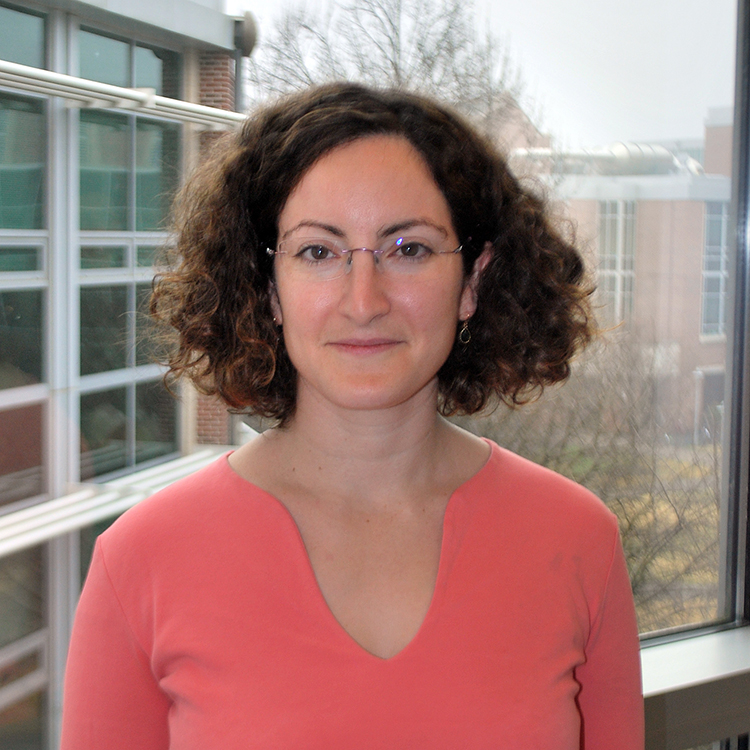 Moran Frenkel-Pinter hails from Israel. She came to Georgia Tech with B.S., M.S., and Ph.D. degrees in biotechnology from Tel Aviv University. She also received a postdoctoral fellowship from a Tel Aviv University presidential program to advance women in science.
Moran Frenkel-Pinter hails from Israel. She came to Georgia Tech with B.S., M.S., and Ph.D. degrees in biotechnology from Tel Aviv University. She also received a postdoctoral fellowship from a Tel Aviv University presidential program to advance women in science.
A consistent summa cum laude student, she studied how changes in protein glycosylation plays a role in Alzheimer's disease for her Ph.D. research.
For her postdoctoral research at Georgia Tech, Frenkel-Pinter is working with scientists at the forefront of discovering how life on Earth came about from simple molecules. She finds it remarkable how easily amino acids can join to form peptides under abiotic conditions.
Amino acids form peptide bonds effortlessly to form polymers called depsipeptides when subjected to dry heat in the presence of hydroxy acids. These molecules – available on Earth before life existed – are close analogs of amino acids.
Why Georgia Tech?
Frenkel-Pinter wanted to work with the cutting-edge researchers in the origins-of-life field at Georgia Tech and to be part of the NSF-NASA Center for Chemical Evolution. The center aims to understand the origin of modern biopolymers. The center’s work provides fresh insight into the molecules on prebiotic Earth that may have helped life get started. “I feel very lucky to be part of it,” she says.
The Project
Frenkel-Pinter’s project is titled “Prebiotic Self-Assembly of Plausible Proto-Depsipeptides.” She works with Martha Grover, Nicholas Hud, and Loren Williams.
Grover is a professor in the School of Chemical and Biomolecular Engineering. Her research is focused on understanding macromolecular organization and the emergence of biological function.
Hud and Williams are professors in the School of Chemistry and Biochemistry. Hud is director of the NSF-NASA Center for Chemical Evolution, of which Grover and Williams are members. Williams is director of the recently established Center for the Origin of Life.
Grover, Hud, and Williams are members of the Parker H. Petit Institute for Bioengineering and Bioscience.
Frenkel-Pinter works on elucidating mechanisms that lead to the formation of proto-peptides that can spontaneously polymerize, fold, and function under prebiotic conditions. This research directly supports NASA’s goal of understanding how life emerges from cosmic and planetary precursors.


